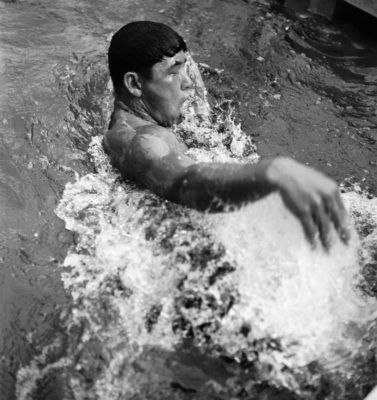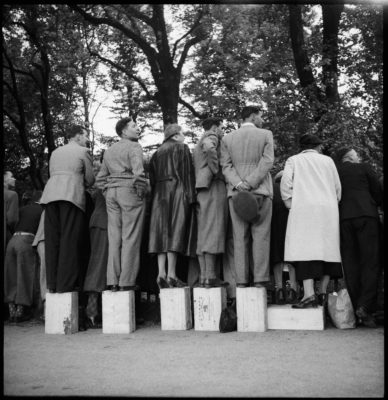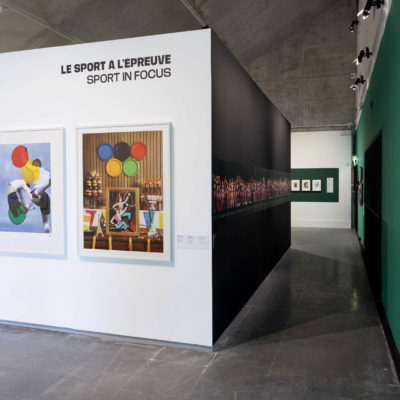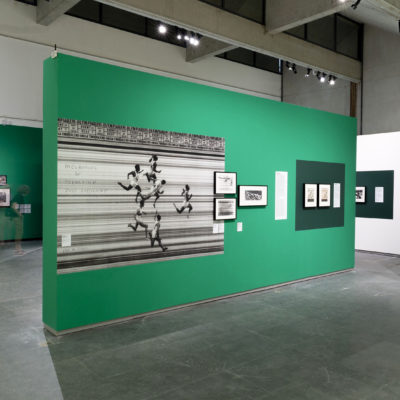Exhibition
For over a century, major sporting events have been accompanied by images. With the rise of amateur photography in the late 19th century, coinciding with the first modern Olympic Games in 1896, photography and sports have, in many ways, evolved together. The visibility given to sports events necessarily involves photographic imagery. Pursuing performance, combining effort with gesture, the practice of sports follows precise rules and is showcased when performed for competition. The staging of sports is relayed by photographers who position themselves around the stadium.
For more than a hundred years, sports spectacles have been carried by the media. The images that broadcast achievements and promote champions attract ever larger crowds and gain an increasingly global audience. Sporting performance, captured by cameras, becomes a demonstration of a societal model. Watched and practiced everywhere, whether in the most industrialized or remote areas of the globe, sports spectacle is propelled into a media, economic, and political world. Undoubtedly, photography has played an essential role in this process, mobilizing a mass audience.
"The Sport on Trial" exhibition unveils the extensive photographic collections of the Olympic Museum and the Photo Elysée museum in Lausanne. During major competitions, photographs are designed to draw attention to athletes' performances. By exploring a largely unpublished photographic heritage, the exhibition reveals the visual grammar of sports photography through several themes: the mediatization that began in Athens in 1896; the technique that seeks to capture movement through freeze frames; the composition that influences visual narration and constructs the celebration of sports; the figures that take place in the stadium where athletes face a crowd gripped with emotions; and the photographers who use sports photography as pure documentation of achievement and others as an artistic means. The numerous focuses offer us a narrative that highlights sports photography and the Olympic Games in particular.







